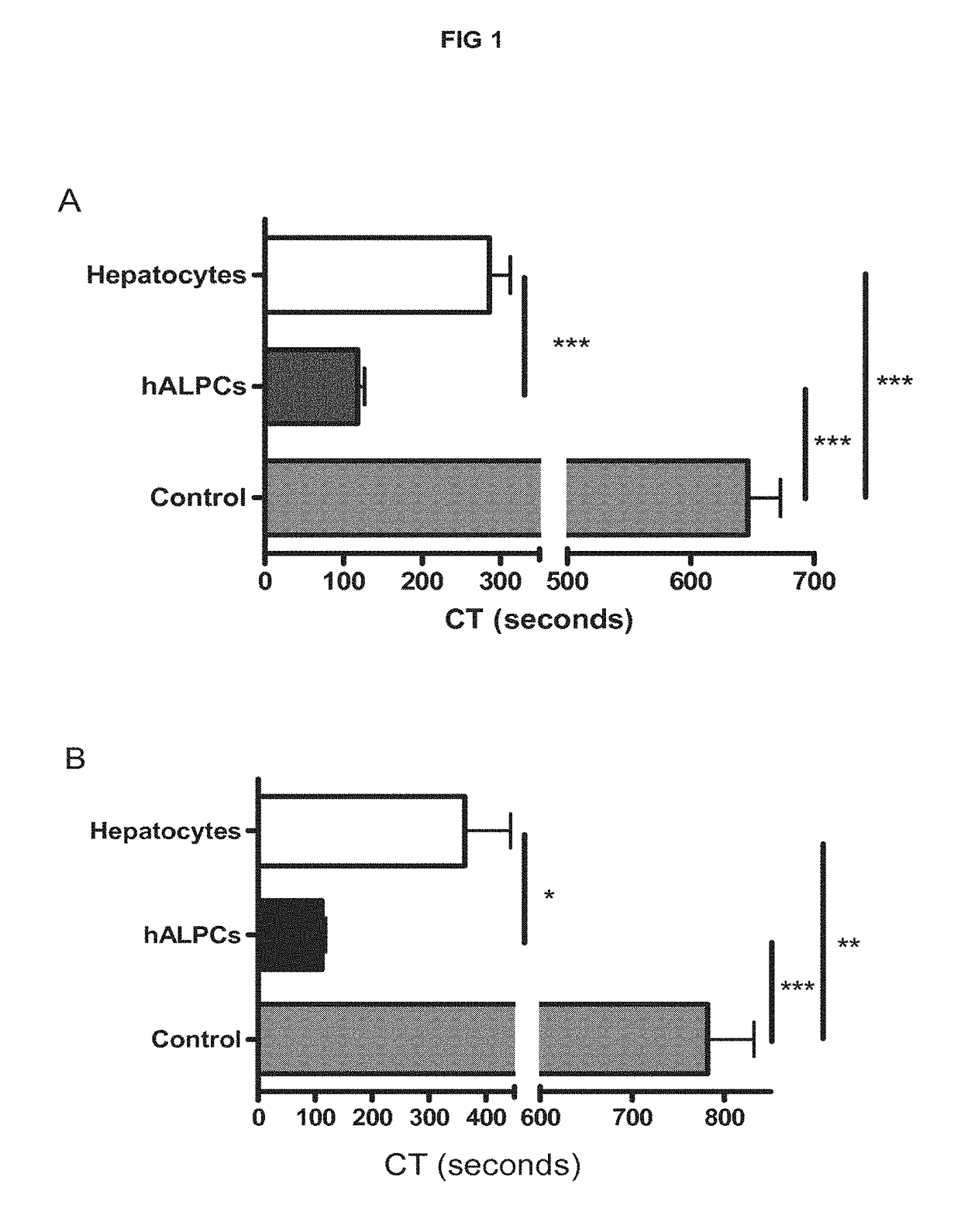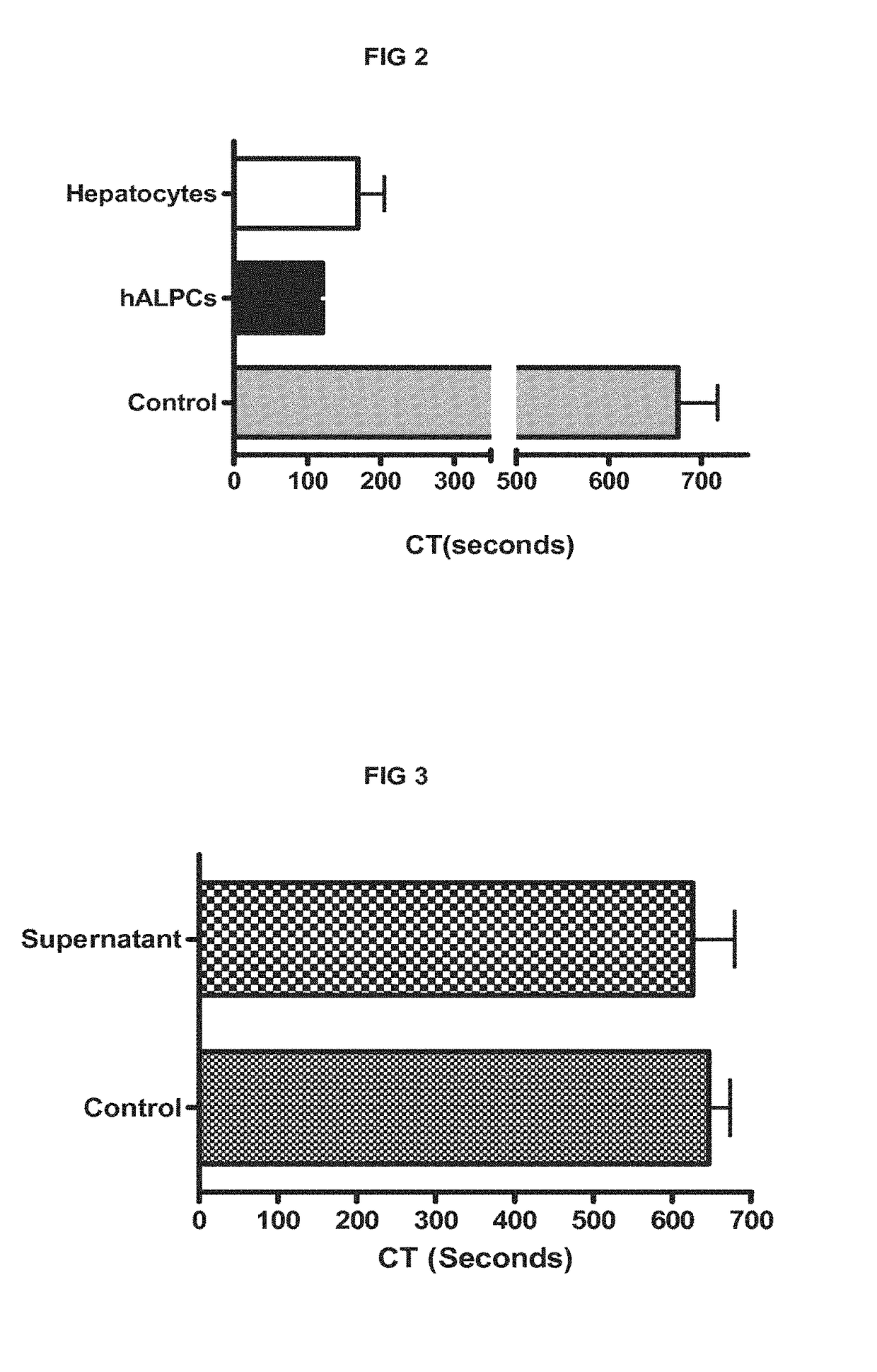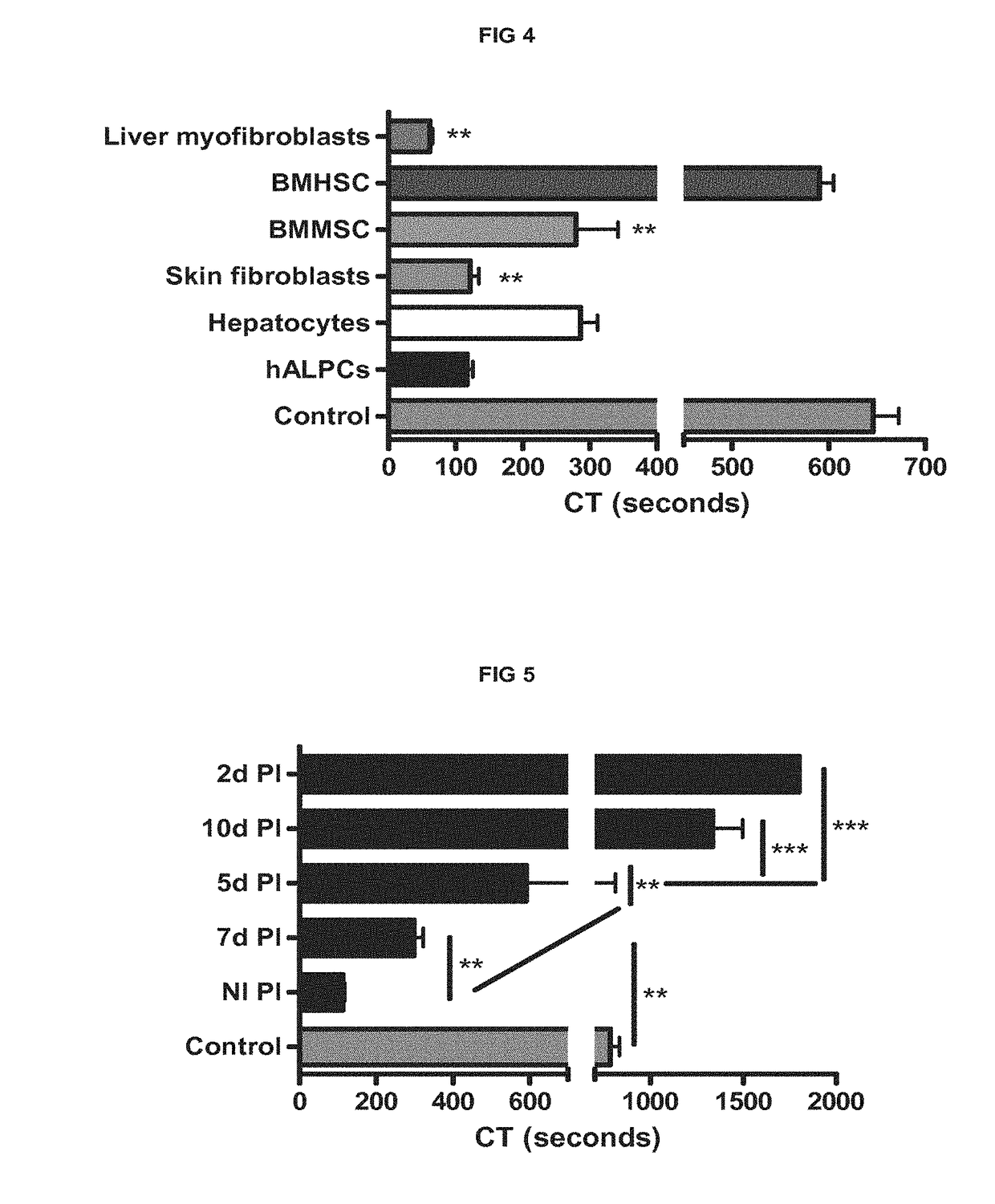Compositions and methods for cell transplantation
a cell transplantation and cell technology, applied in the field of tissue regeneration, can solve the problems of unsatisfactory bloodstream modification, loss of transplanted cells, and reduction of cell engraftment potential and/or thrombotic events,
- Summary
- Abstract
- Description
- Claims
- Application Information
AI Technical Summary
Benefits of technology
Problems solved by technology
Method used
Image
Examples
example 1
and Methods
[0197]The protocol, including all experiments on human samples, and the human off label anticoagulant protocol use, and the informed consents were approved by the institution ethical review board.
[0198]Cell Preparations hALPC cells were obtained from healthy liver donors (n=6, aged 9 to 44 years) as previously described (Najimi et al., Cell Transplant. 2007; 16:717-728). Cells were studied freshly trypsinised or after cryopreservation / thawing at passages 4 to 6. Cells were suspended in an albumin solution containing or not containing heparin at a concentration of 10 U / mL (or more when specified). We also used, as a control, cryopreserved / thawed human hepatocytes (n=5, aged 16 to 44 years). Liver isolation and hepatocyte cryopreservation / thawing procedures were previously published in detail (Sokal et al., Transplantation. 2003; 76:735-738).
[0199]Bone marrow samples were collected by aspiration of vertebrae or iliac crests of 3 post-mortem organ donors aged 8 to 67 years. ...
example 2
ant Activity of Adult-Derived Human Liver Mesenchymal Stem Cells (hALPCs)
[0219]We demonstrated the procoagulant activity (PCA) of human adult liver progenitor cells (hALPCs) by thromboelastometry method on human blood and plasma. Clotting time (CT) of hALPCs was less than that of hepatocytes as evaluated in the thromboelastogram (in blood, 117.5±33.8 sec (n=15) vs. 285.8±87.0 sec (n=11), p<0.001) (in plasma, 112.6±18.4 sec (n=9) vs. 363.0±180.1 sec (n=5), p<0.05) (FIGS. 1A and 1B). The control CT, without addition of cells, was measured at 646.2±111.7 sec (n=15) in blood and at 781.9±150.5 (n=9) in plasma. A comparable PCA of hALPCs was observed when no extrinsic TF was added (FIG. 2). No PCA was obtained when the hALPCs culture medium, absence of cells, was placed in the thromboelastogram instead of cells (FIG. 3).
[0220]We also evaluated the PCA of hALPCs in the tubing loop model. Decrease of platelets count and increase of D-Dimers levels were observed after incubation of hALPCs w...
example 3
ant Activity of Mesenchymal Cells
[0221]We also demonstrated the PCA of bone marrow mesenchymal stem cells (279.3±108.3 sec (n=3)), skin fibroblasts (121.8±26.53 sec (n=3)) and liver myofibroblasts (61.7±7.6 sec (n=3)) by thromboelastometry method on human whole blood. Bone marrow haematopoeitic stem cells were used as a control of non procoagulant cells (590.7±25.3 sec (n=3)) (FIG. 4).
PUM
 Login to View More
Login to View More Abstract
Description
Claims
Application Information
 Login to View More
Login to View More - R&D
- Intellectual Property
- Life Sciences
- Materials
- Tech Scout
- Unparalleled Data Quality
- Higher Quality Content
- 60% Fewer Hallucinations
Browse by: Latest US Patents, China's latest patents, Technical Efficacy Thesaurus, Application Domain, Technology Topic, Popular Technical Reports.
© 2025 PatSnap. All rights reserved.Legal|Privacy policy|Modern Slavery Act Transparency Statement|Sitemap|About US| Contact US: help@patsnap.com



